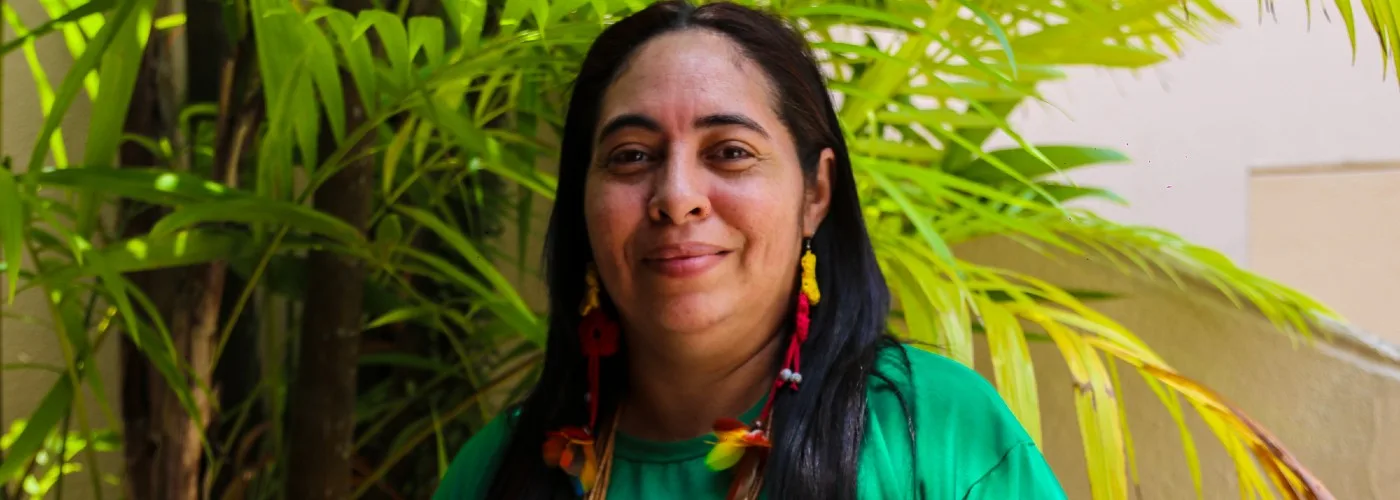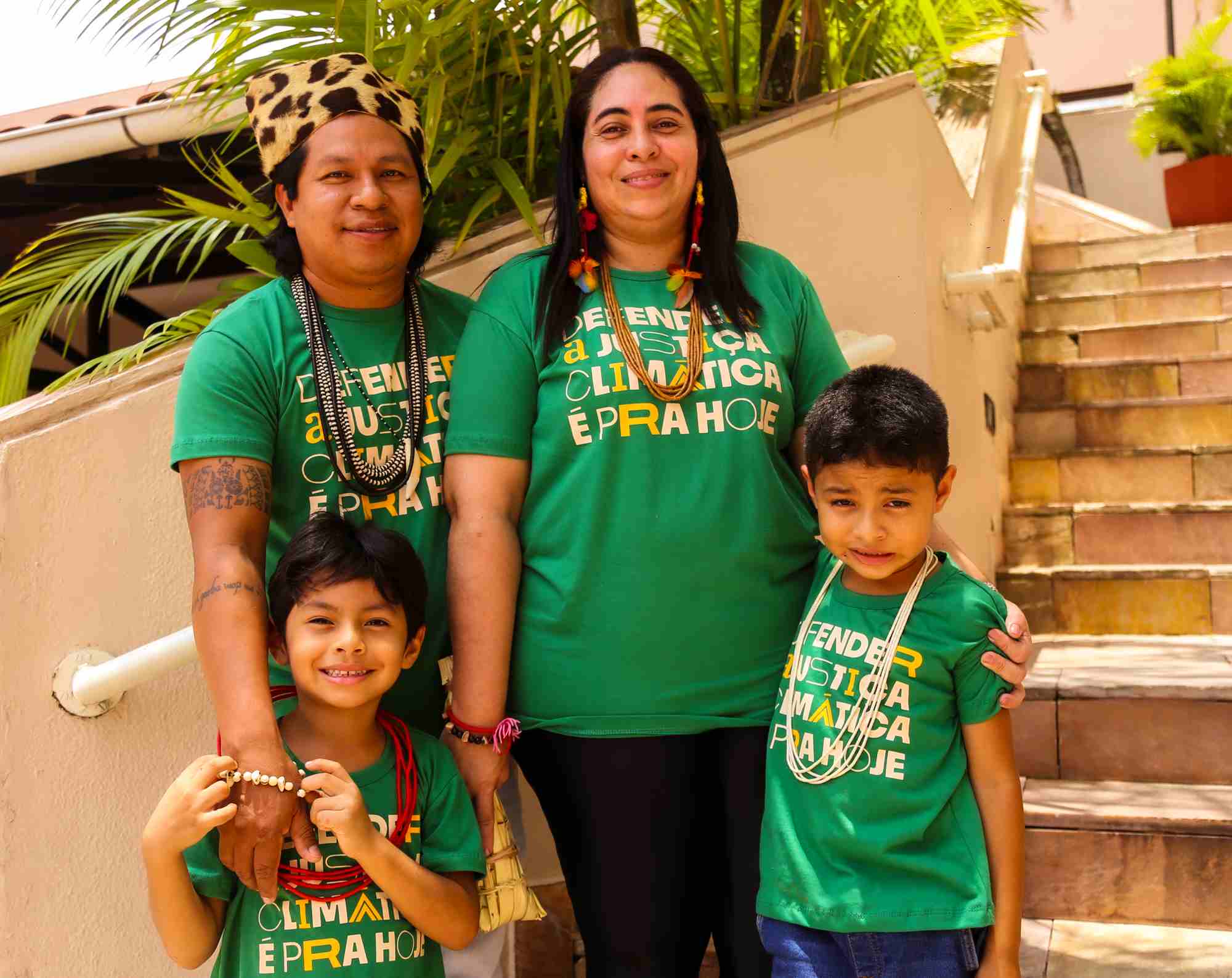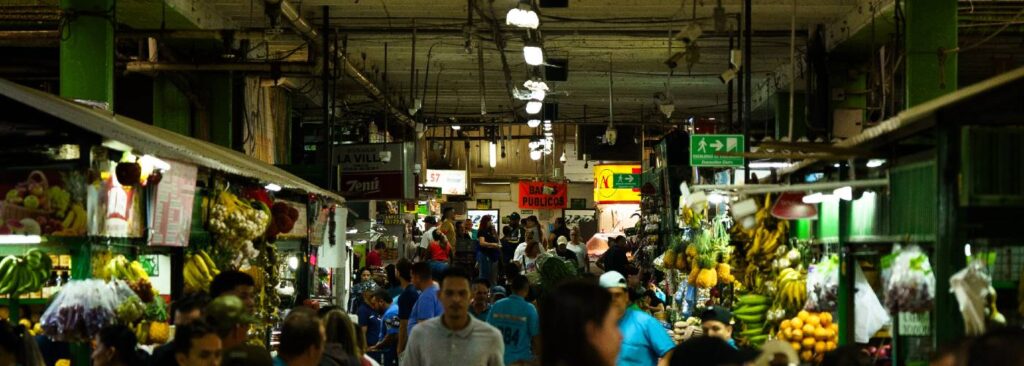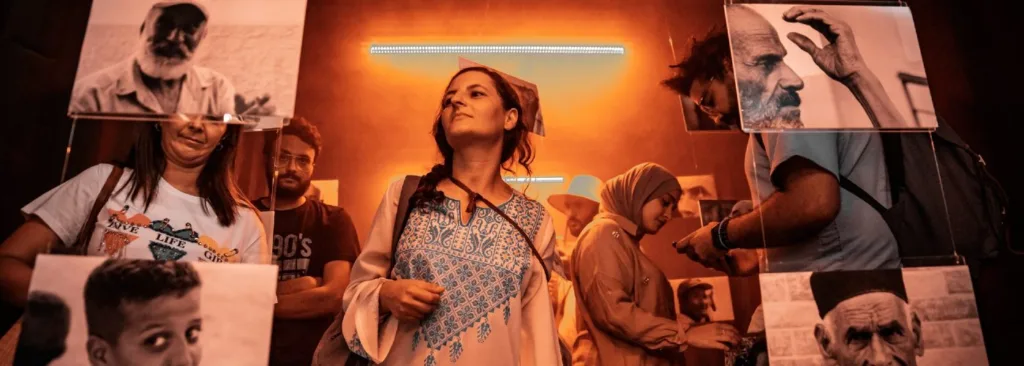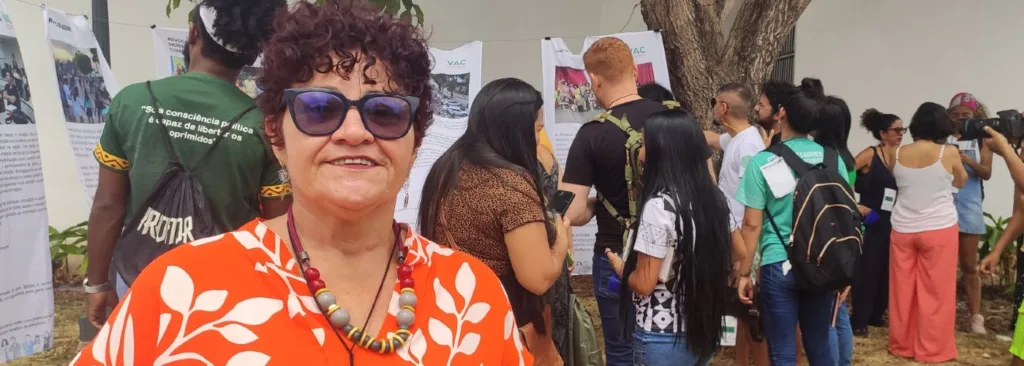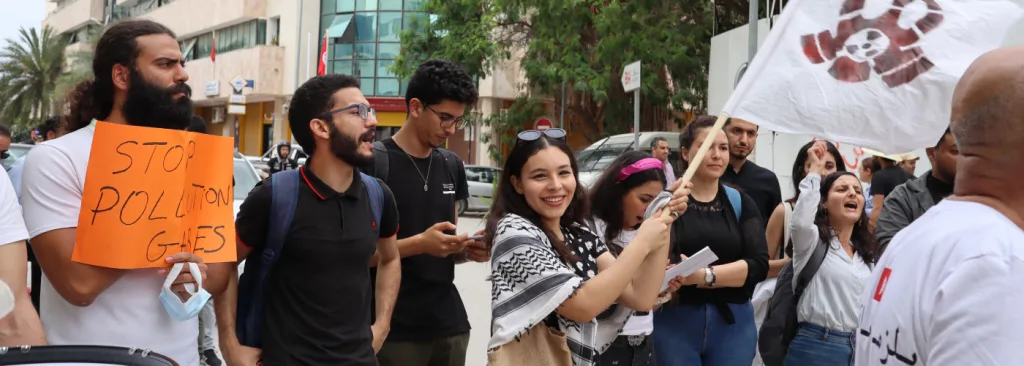A social sciences student and environmental activist, Alexandra Suruí also advocates for the rights of Indigenous Peoples. Her village Gapgir is located in the Sete de Setembro territory in the Amazon rainforest.
Together with her community, she runs an organization that revives traditional farming fields and builds communal chicken coops and fish tanks. This ensures that Suruí families in the forest have access to healthy food as well as an additional source of income. The Suruí started the country’s first Indigenous fire department and opened a museum of Indigenous culture.
Hivos’ Voices for Just Climate Action program supports an artivism project of theirs that creates activist art to share their message about climate change and the urgent need for conservation of the rainforest.
We sat down with her to get an insider’s view of how Indigenous people are experiencing climate change.
Tell us about the current state of the area around Gapgir and how your lives are being affected.
“The Indigenous Suruí people have always protected the rainforest. But deforestation and climate change are making this increasingly difficult. In addition to more forest fires, the rainfall patterns are also changing. This disrupts our rain calendar, and means we miss traditional celebrations like the corn festival. It’s also eroding our culture. Our daily life is intimately linked to the forest: we grow our crops there, find our traditional medicine there, and collect seeds to decorate with. Right now, nature is giving us signals that things are not going well.”
“Suruí women are particularly vulnerable to the effects of climate change. For example, after giving birth, we take a bath with local plants and eat special fruits and nuts. But now, there are few of these species left. We are very concerned about that.”
How do you think you and Museu Paiter A Soe can help?
“In a few years we hope to have a strong, well-trained team that can watch over our environment. We want to involve young people in our activism and ensure that women have a say in (environmental) policy. We hope that our forest will then be a place where children can grow up healthy, where you can live a good life, and where the Suruí language and culture flourish.”
“But one of our biggest problems is a lack of money. Before our community came into contact with the “outside world” we didn’t need money. Everything we needed we found in the forest. And with the outside world also came threats to our environment. So now, ironically, we need money to protect it.”
Are there any signs that things are changing?
“Actually, yes. Over the past seven years, we have noticed that our message has resonated with people far beyond our territory. And indeed, Indigenous people are fighting not only for themselves, but for everyone. We have been ignored for years, but now the United Nations and others are starting to see that Indigenous groups are nature’s best protectors.”
About Voices for Just Climate Action
The Voices for Just Climate Action (VCA) program, initiated in January 2021, is a lobby and advocacy program implemented by an alliance led by four strong Southern CSOs: Akina Mama wa Afrika, Fundación Avina, Slum Dwellers International and SouthSouthNorth, and two Global CSOs: Hivos and WWF-Netherlands. It falls under the Dutch Ministry of Foreign Affairs’ five-year strategic partnership: “Power of Voices.” The program aims to ensure that by 2025, local civil society and underrepresented groups will have taken on central roles as creators, facilitators, and advocates of innovative and inclusive climate solutions.

